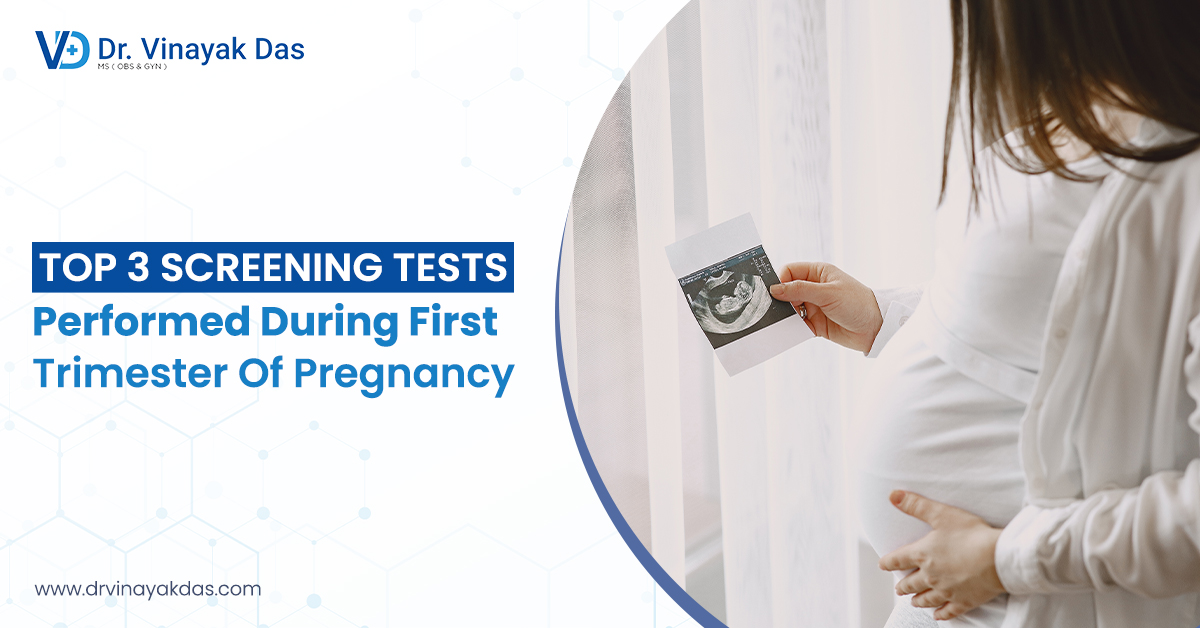Pregnancy is one of the most important and exciting stages in a woman’s life. This experience can become extremely calming if you have the assurance that you and your baby’s health is perfectly fine. Prenatal screenings are highly effective in giving you this assurance as they identify whether the baby is suffering from any genetic disorders or not.
The prenatal screening tests are usually recommended by the doctors during the first and second trimesters, where the first trimester tests are most essential. You can contact the top gynaecologist in Siliguri to undergo screening tests to ensure the proper health status of the baby.
Given below are some of the effective screening tests that are performed during the first trimester.
1. Maternal Serum Tests
The first test that is recommended during the first trimester of pregnancy is maternal serum or blood tests. This test measures two of the most important substances present in the blood of pregnant women, which include Human chorionic gonadotropin (hCG) and Pregnancy-associated plasma protein A (PAPP-A). Both of these hormone and protein found in the blood are produced by the placenta.
After getting the result of these tests, if any abnormality is found in the results then it will indicate certain chromosomal abnormalities in the fetus. In the case of low hCG, it indicates ectopic pregnancy, blighted ovum, and miscarriage, whereas high levels indicate molar pregnancy, multiple pregnancies, and abnormal growths present in the uterus. Additionally, low levels of PAPP-A specify risks of preeclampsia, low birth weight of the baby, and preterm birth.
2. Nuchal Translucency Screening
Another essential screening test that you can undergo during the first trimester by visiting a reputed gynaecologist hospital in Siliguri is the Nuchal Translucency (NT) test. This test is done to measure the fluid amount present behind the back of your baby. This measurement helps in determining the risk of the baby developing an abnormal genetic or chromosomal variant.
During the ultrasound, if the doctor witnesses a higher amount of the fluid then it will indicate the risks of Edwards’s syndrome, Down syndrome, or Patau syndrome. The chances of congenital heart issues and abnormalities in the basic anatomical structure of the fetus can also be determined during this test. This low-risk screening is highly effective in finding any abnormalities when it is combined with other blood tests or ultrasound.
3. Nasal Bone Determination Ultrasound
The evaluation of nasal bone with an ultrasound is also important during the first trimester. This is because the abnormal or decreased size of the nasal bone is the most effective marker to determine the chances of developing Down syndrome. The abnormalities in nasal bridge has been found in most of the cases of Down syndrome in the baby.
In some cases, there can also be an absence of nasal bone which indicates congenital anomalies. If the nasal bone size is appropriate then it will determine the presence of normal chromosomes and the proper health status of the fetus.
Consulting the best fetal medicine specialist in Siliguri will ensure accurate results of the first-trimester screening tests. These tests not only recognize genetic disorders but can also aware you of any improper placental structures, pelvic anatomy, or chances of miscarriage.





Comments